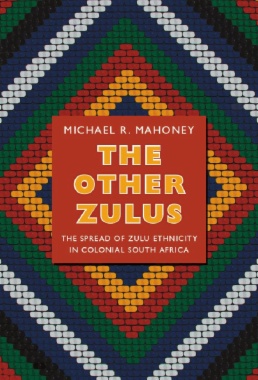In 1879, the British colony of Natal invaded the neighboring Zulu kingdom. Large numbers of Natal Africans fought with the British against the Zulus, enabling the British to claim victory and, ultimately, to annex the Zulu kingdom. Less than thirty years later, in 1906, many of those same Natal Africans, and their descendants, rebelled against the British in the name of the Zulu king. In The Other Zulus, a thorough history of Zulu ethnicity during the colonial period, Michael R. Mahoney shows that the lower classes of Natal, rather than its elites, initiated the transformation in ethnic self-identification, and they did so for multiple reasons. The resentment that Natal Africans felt toward the Zulu king diminished as his power was curtailed by the British. The most negative consequences of colonialism may have taken several decades to affect the daily lives of most Africans. Natal Africans are likely to have experienced the oppression of British rule more immediately and intensely in 1906 than they had in 1879. Meanwhile, labor migration to the gold mines of Johannesburg politicized the young men of Natal. Mahoney's fine-grained local history shows that these young migrants constructed and claimed a new Zulu identity, both to challenge the patriarchal authority of African chiefs and to fight colonial rule.
- Contents
- Acknowledgments
- Maps
- Introduction
- 1. The Failure of Zulu Ethnic Integration in the Precolonial Zulu Kingdom
- 2. A Zulu King Too Strong to Love, a Colonial State Too Weak to Hate, 1838–1879
- 3. Increasing Conflict among Natal Africans, 1879–1906
- 4. The Role of Migrant Labor in the Spread of Zulu Ethnicity, 1886–1906
- 5. Natal Africans’ Turn to Dinuzulu, 1898–1905
- 6. The Poll Tax Protests and Rebellion, 1905–1906
- Epilogue
- Notes
- Bibliography
- Index

